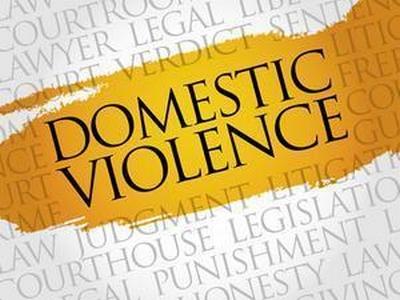Victims of Domestic Violence: An Order of Protection Can Help
 Domestic violence is a major issue in America, and despite growing awareness and media coverage, many victims across the country suffer without help. Some victims fear they will not be believed if they report the abuse. Others fear retaliation from their abuser. In just one day, domestic violence hotlines across the country receive over 20,000 phone calls. In Illinois, victims of domestic violence do not need to suffer. An order of protection can help victims of domestic violence escape their abuser and stay out of harm's way while additional help is received.
Domestic violence is a major issue in America, and despite growing awareness and media coverage, many victims across the country suffer without help. Some victims fear they will not be believed if they report the abuse. Others fear retaliation from their abuser. In just one day, domestic violence hotlines across the country receive over 20,000 phone calls. In Illinois, victims of domestic violence do not need to suffer. An order of protection can help victims of domestic violence escape their abuser and stay out of harm's way while additional help is received.
Orders of Protection in Illinois
Victims of domestic violence are eligible to get orders of protection in Illinois. These orders prevent an abuser from further harming the victim, and may include other restrictions. The order may require that the abuser to stay away from the victim and their other family members, may limit their communication or prevent communication completely, and could restrict any potentially abusive behavior such as harassment or stalking. An order of protection, depending on its requirements, may also order the abuser to take actions to better themselves, such as attending a treatment program or counseling session. They can also require abusers to pay child support.
Illinois law states that any victim who is a "family or household member" is eligible to be protected by an order of protection. Family or household members can include:
- Relatives (either by blood or marriage);
- Spouses;
- Children, stepchildren, and parents;
- Those who live together or have done so in the past;
- Dating couples and individuals who have dated each other in the past;
- Individuals who share a child; and
- Individuals with personal disabilities and any professional helpers working with them.
What Qualifies as Domestic Violence in Illinois?
A number of varying situations could potentially be labeled as domestic violence, and different service providers may have different definitions and qualifications of domestic violence. Illinois law states that if an individual is seeking an order of protection, their domestic violence must fit into one of five determined categories. These are harassment, intimidation, interference with personal liberty, willful deprivation, and physical abuse.
How Can I Get An Order of Protection?
If you believe you may be eligible for an order of protection, there are a few different methods you can utilize to receive one. An attorney can help you file for an order of protection in civil court. You can also request an order of protection at the time of your divorce or during a criminal trial for abuse. You can also seek an order of protection on your own by visiting your local circuit court clerk’s office. There are also many domestic violence programs that provide assistance for victims hoping to receive an order of protection.
An Illinois Family Law Attorney Can Help
Over the course of a lifetime, one in three women and one in four men in the United States are the victims of physical violence from an intimate partner. Do not become another statistic. If you believe you are the victim of domestic violence, a skilled Naperville family law attorney can help. The experienced attorneys at Pesce Law Group, P.C. are here to protect you and your family. We use proven and effective methods to keep our clients out of immediate harm and also offer legal solutions to keep our clients safe in the future. Call 630-352-2240 to schedule a free consultation with a member of our team today. We are also available to help those wrongly accused of domestic violence.
Sources:
http://www.illinoisattorneygeneral.gov/women/victims.html
http://www.ilga.gov/legislation/ilcs/ilcs5.asp?ActID=2100&ChapterID=59
http://www.ncadv.org/learn/statistics











 630-352-2240
630-352-2240


